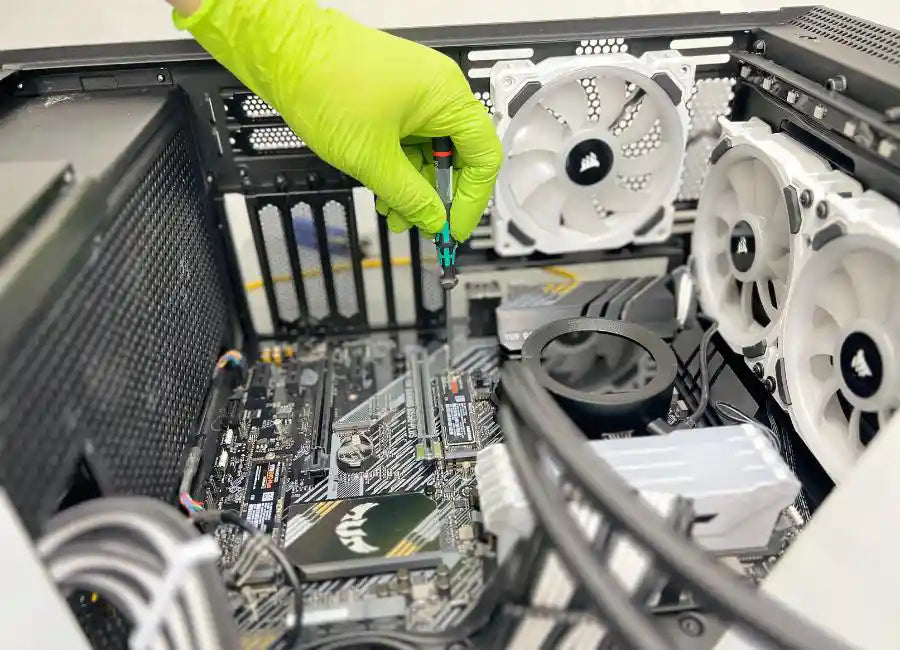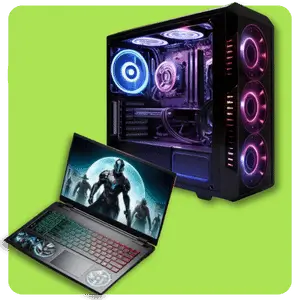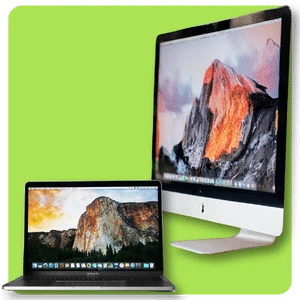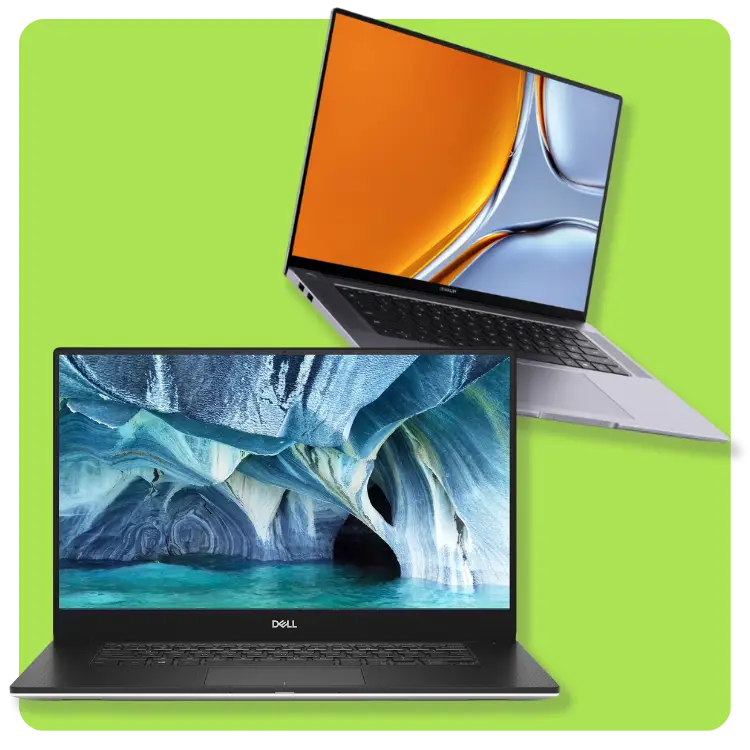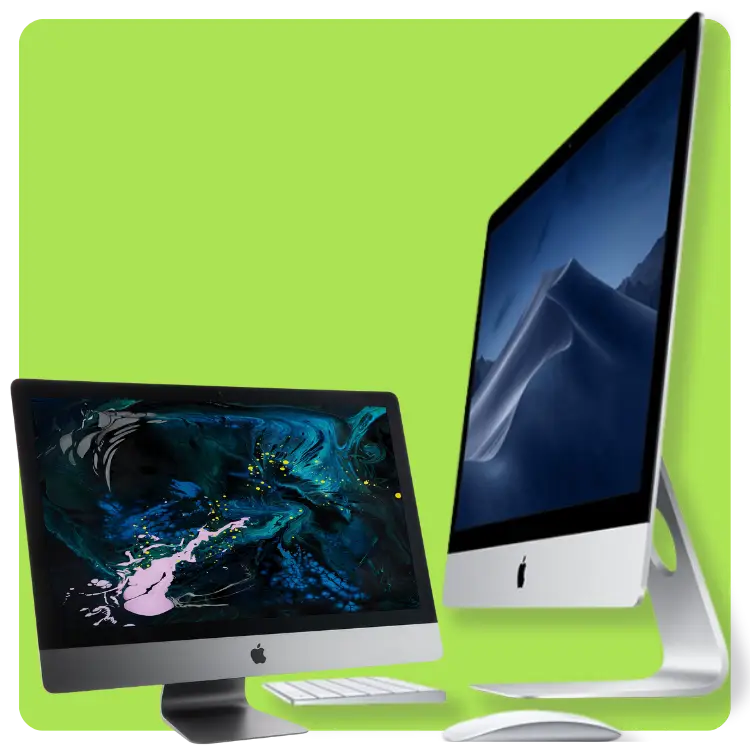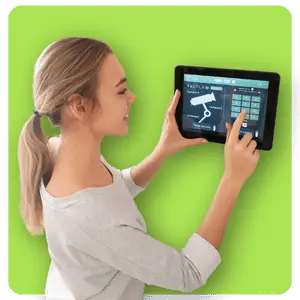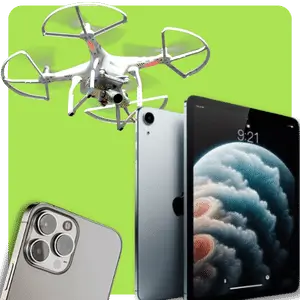The Importance of Gaming PC Maintenance for High Performance
What Kind Of Maintenance Does A Gaming PC Need?
There're three kinds of maintenance your gaming PC will need: physical cleaning, software maintenance, and isolated hardware upgrades. Depending on how up-to-date your Gaming PC is, you will need to do some or all of these.
Table of Contents
- What Kind Of Maintenance Does A Gaming Pc Need?
- What Tools Are Needed For Gaming PC Maintenance?
- Gaming PC Physical Cleaning
- Dust Removal
- Fan Cleaning
- Thermal Paste Replacement
- Cable Management
- Software Maintenance
- Malware Scan
- System Diagnostics
- Streamline The Start Up
- Drivers And Firmware
- Upgrading
- RAM
- HHD to SSD
- GPU
- Power Supply Unit
- Conclusion
What Tools Are Needed For Gaming PC Maintenance?
- Microfiber cloth
- Isopropyl alcohol (99%): it is particularly important not to use any other liquid, if anything that isn't dielectric touches any electric component static energy on your body or tools can easily damage them.
- Cotton swabs
- A blower or a Compressed air can.
- ESD brush.
- ESD wristband connected to ground.
- A place to organize your screws and parts.
For software maintenance, you should download all the new driver updates from the manufacturer's website before you start, and if you're feeling lazy try DriverPack, we’ll always recommend you go directly to the manufacturer for maximum reliability.
Gaming PC Physical Cleaning
Dust Removal
Cleaning a gaming PC is essential for maintaining its performance and longevity. Dust can reduce your Gaming PCs performance and even cause damage. Essential cleaning tools include microfiber cloth and isopropyl alcohol. The cleaning process involves disconnecting the PC, opening its case, and thoroughly cleaning the fans, case, and heatsink. For deep cleaning, removing, and cleaning components like the graphics card and RAM is recommended.
Regular maintenance, every 3-6 months based on environment and usage, is crucial. Our maintenance services at Prime Tech Support in Miami, Florida will keep your PC at peak performance, and measures like using dust filters and positive air pressure configurations can help keep PCs dust-free. Check out this article on cleaning your Gaming PC like a pro.
Fan Cleaning
Dust will stick to your PC's fans, causing them to slow down and get noisier. Without disconnecting them from the motherboard give each fan a gentle blast of air to blow the dust away. Hold the fans still with your fingers while you do this. We don't want them spinning around.
Thermal Paste Replacement
locate the heatsink and remove it from the processor. Wipe off any old Thermal Paste and squeeze a pea-sized amount of your Thermal Paste of choice onto the processor, we recommend you use the Thermal Grizzly Kryonaut.
Place the heatsink back on the processor, which will evenly spread the paste outwards, and monitor the temperature over a few days. For more detailed instructions on how to do this check our guide on How to Clean Gaming PC Like a Pro
Cable Management

Source: Prime Tech Support
Poor cable organization is a leading reason for dust accumulation inside computers. When cables are scattered randomly within the computer case, they obstruct the smooth flow of air.
This restricted airflow allows dust to settle on cables, components, and the case itself. A practical solution is to organize the cables inside your computer.
Many computer cases, like the Corsair 4000D Airflow, come with integrated cable management features. These often encompass features like cable channels, built-in cable ties, and concealment accessories, aiding in neat cable arrangements.
It's best to position most cables close to the back side panel, minimizing their presence in the main compartment with your hardware. Using sleeved power cables is beneficial as they improve airflow.
For a small investment, acquiring a set of cable ties can dramatically enhance the neatness inside your case, offering both aesthetic and functional benefits.
Software Maintenance
Malware Scan

Source: Prime Tech Support
For peace of mind, there are numerous reliable and complimentary antivirus solutions available to ensure your PC remains pristine. Windows already equips you with Windows Defender (WD) right out of the box, which has significantly improved from its early days, some experts even consider WD to be on par with any other commercial antivirus and it is a well-known fact that WD is a lot lighter on resources than other options.
System Diagnostics
Make use of the integrated Task Manager or software like AIDA64 to monitor your system temperatures and performance, run some resource-intensive programs like big games or design software to stress your PC, identify weaknesses like particularly hot components, and adjust fan speeds or add additional cooling solutions if necessary.
Streamline The Start Up
Startup programs, while convenient, can pile up and can result in slow boot times. The solution is to clean up your startup programs.
Access your Task Manager, and you'll find a 'startup' tab. Within it, you'll see a list of programs. These represent the applications set to launch when you boot up.
You'll typically find game platforms like Steam and antivirus tools in this list. Minimizing the number of startup apps can genuinely enhance boot speeds, particularly for HDDs.
As a guideline, you can allow programs such as NVidia or AMD driver tools and peripherals software like Logitech or Razer Synapse to auto-start, along with your antivirus. To do that, right-click on a entry and select Disable. If it ends up having negative consequences, you can always go back and re-enable a startup item.
Drivers And Firmware
If you open up Device Manager in Windows, you'll see a huge number of hardware components that make up your PC. The vast majority of them require drivers, those pieces of software that sit between your components and your operating system so that software can talk to your hardware correctly. You've likely been told that it's very important to keep your drivers updated.
If there's only one driver you ever bother updating on your PC, it should be GPU drivers. As game developers keep trying to make their titles look more impressive by adding support for newer technologies, having the most recent GPU drivers can make a real difference in both your game's appearance as well as your frame rates.
This can include enabling or enhancing support for features like Nvidia's DLSS on certain titles and G-Sync on certain monitors, or Super Resolution and FreeSync if you have a card from AMD. Even if you're just using your processor's built-in graphics, driver updates can still boost performance in certain games, enable greater control over your display settings, and fix weird graphical bugs that don't have an obvious solution.
There are a few cases where it's a good idea to make sure you're downloading the specific drivers for that component from the manufacturer, rather than using the default Windows drivers. But it might not be as important to update them continually. One good example is your chipset. This is a chip that handles much of your system's input, output or IO. Without correct chipset drivers, you may find that some of your ports or onboard devices don't work quite as intended.
Sometimes they'll show up as components with error notifications on them in Device Manager, for example. Chipset drivers can even offer added functionality such as the different power options AMD provides with chipsets for its Zen 2 CPUs. The good thing is that after you do this once, updating it again isn't as critical as with the GPU.
Finally, any other components that might not be an integral part of the standard PC will benefit from having the official drivers installed. Like webcams, AIO liquid coolers, and anything that uses RGB. If you're experiencing issues with any of these components, or if there's news of a security hole, check for an updated driver as there's at least a decent chance a recent driver release will contain bug fixes and security patches.
While firmware and drivers are two different things, it can still be important to update your system firmware in certain circumstances. The best-known example of computer firmware is the BIOS, which is the basic code that your motherboard needs to start up and communicate with the other components. While it typically isn't crucial to grab every BIOS update as soon as it's released, it’ll be a good idea to do the update if it's necessary for upgrading to a new OS, processor, fixing a security vulnerability, or to unlock a new feature. As we have seen on recent motherboards that support resizable BAR. for graphics cards, for example. Other components also contain firmware, notably discreet graphics cards and SSDs.
Upgrading

Source: Prime Tech Support
The first thing to consider before contemplating any part purchase is compatibility, beyond the fact that you need the upgrade or not if the part you're looking into isn’t compatible it's all wasted money, so with that in mind we can recommend one of the most beloved websites for compatibility checking and pc builds: pcpartpicker.com there you can choose your motherboard and other parts your pc already have, and pair them with the ones your thinking about upgrading with, check cpu.userbenchmark.com for performance benchmarks and get ideas on what's hot with and its price.
Of course, even if the site clears all the pieces as compatible double check the Qualified Vendor List for the parts once you’ve settled on a build.
RAM
Evaluate your RAM requirements based on the games you play and consider upgrading to higher capacity modules or faster speeds if needed, opt for reputable brands and ensure compatibility with your motherboard.
In general terms we recommend you get a 64GB kit, at either DDR4 or DDR5 if it’s compatible with your build and you can afford it, this at the higher clock speed you can afford. If you want to get more knowledge on the matter of RAM so you can make a better choice, we have an amazing article about Why RAM Matters For Gamers.
HHD to SSD
Regularly assess your storage requirements and consider upgrading to larger capacity solid-state drives (SSDs) or if you still use HHDs change them for faster and long-lasting SSDs.
Often times we receive customers wondering why their games don’t run as fast as they’d expect if they have the best CPU/GPU combo on the market, and when we ask about their storage, they are using an HDD, with some speed tests https://www.youtube.com/watch?v=V3AMz-xZ2VM showing up-to 5xfaster booting times and 30% faster Games installs on SSDs vs HDDs it was easy to identify where the bottleneck was.
Once we provide the customer with a brand new NVMe M.2 Samsung 990 pro and installed all his games there he was able to take full advantage of his top notch Gaming PC.
GPU
If your GPU is damaged or isn't longer up to the latest and greatest Games consider getting a new one, to choose the right one check what's attainable on your budget, compatibility and then if all checks out get the best one for your needs, based on repairability and number of damaged cards we get in to the lab well recommend you to go for Nvidia cards.
Once there, evaluate what your gaming preferences are. If you go for 4k high FPS gaming you need a topnotch card like the RTX 4090 or a 4080, if you play at 1440p then a RTX4070 paired with an entry-level processor like the coveted Ryzen 5600 you can get avg 100-120FPS and 60FPS at 1% low with all settings maxed out on common tittles like battlefield 2042, GTA5 and Fortnite.
Power Supply Unit
It’s important to assess the power requirements of new components. A robust and efficient power supply is essential to support high-performance graphics cards, processors, and other hardware. Calculate your system’s power needs and invest in a reliable power supply with adequate wattage and the necessary connectors for your upgrades.
Conclusion
A Gaming PC requires regular maintenance and occasional upgrades to ensure that it continues to deliver optimal performance. As avid gamers continuously push their machines to the limit, physical cleaning, software maintenance, and timely hardware upgrades become essential. Prime Tech Support offers the Upgrade Service in Miami, Florida, emphasizing the importance of each maintenance aspect, from dusting off your GPU to ensuring your software drivers are up-to-date.
As Gaming evolves so does the demand for a robust, efficient, and high-performing machine. Through diligent care and periodic upgrades, gamers can ensure that their PCs are always ready for the next big title, providing an uninterrupted and superior Gaming experience.
Articles You Might Be Interested In
-
How to Clean Gaming PC Like a Pro
-
Why Is My Gaming PC Suddenly Slow – Quick Fix
-
Common PC Building Mistakes to Avoid: Your Guide to a Flawless Build
Sources
https://cpu.userbenchmark.com/
